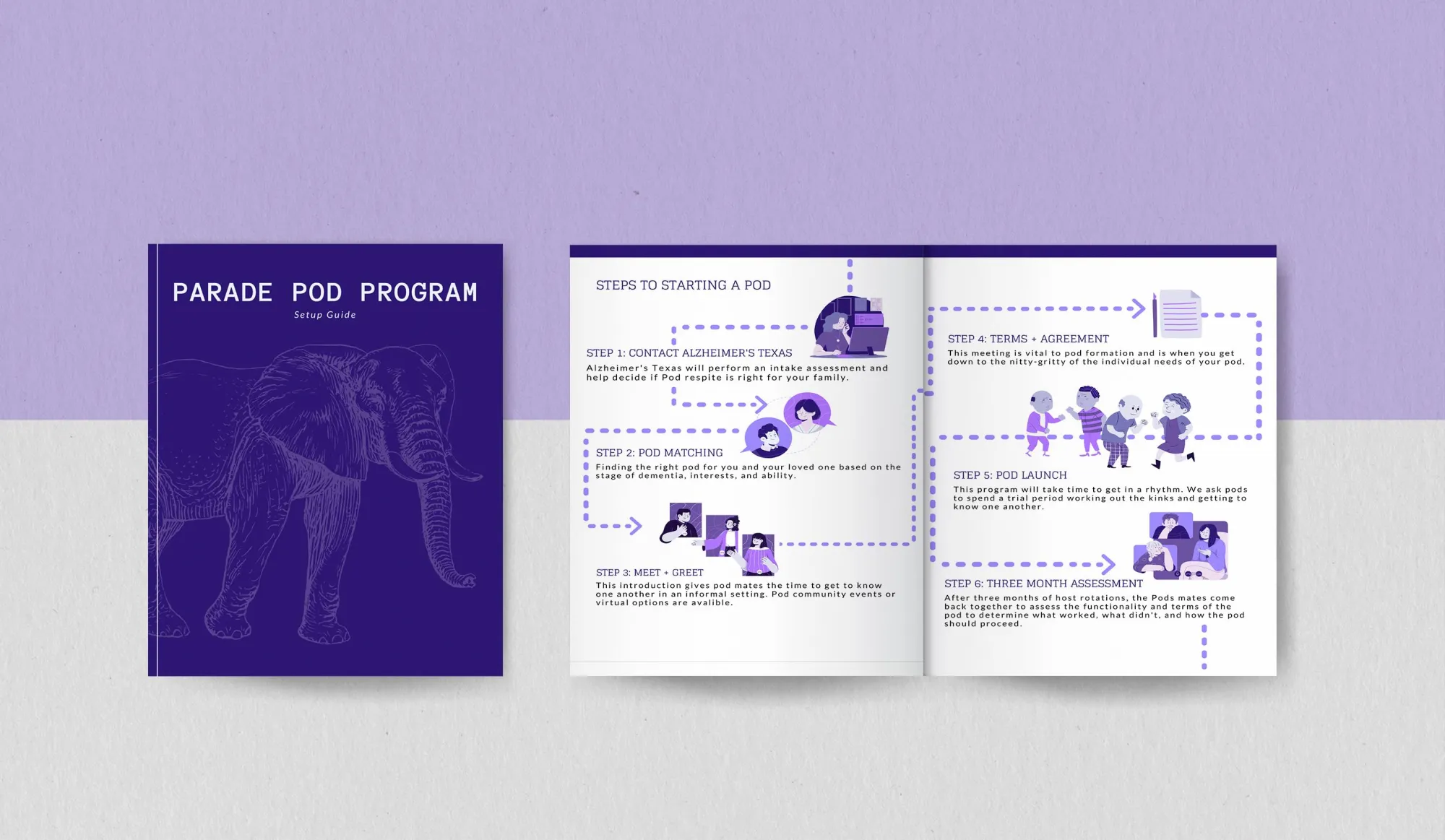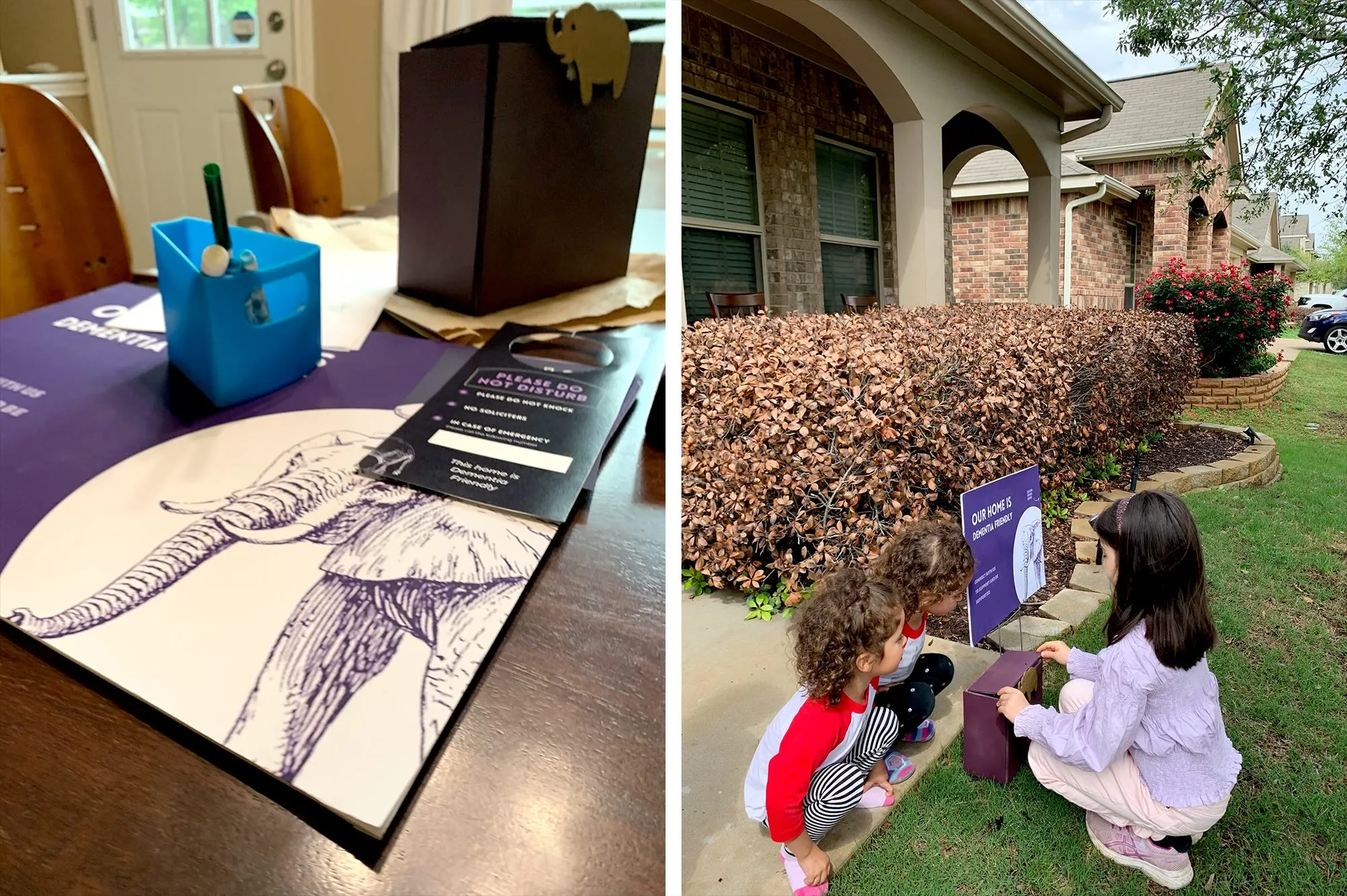Designing a new service model for respite care delivery
Challenge
How might we connect Alzheimer’s and dementia caregivers and help ensure they receive the support they need in the COVID-19 era?
Context
Our society struggles to address the challenge of caring for caregivers. Specifically related to dementia, most of the care is provided by informal family caregivers who endure substantial stress without much support. The onset of the COVID-19 pandemic brought existing respite care—in-person, group gatherings that provided a few hours of relief to caregivers—to a screeching halt. These changes called attention to the shortcomings of the existing systems in providing financial, social, and physical support for Alzheimer’s and dementia caregivers.
This challenge prompted a team of five M.A. in Design focused on Health learners to form a partnership with Alzheimer’s Texas to more deeply understand, through several areas of design, how to provide this respite for caregivers during the pandemic and beyond.
Approach
Design a community-based approach to caregiver support that offers a more personalized, scalable model for respite—one that can adapt across different groups.

Insights
- There is no one-size-fits-all respite approach for either the caregiver or the individual with Alzheimer's—needs vary greatly by lived experience, circumstance, and culture.
- The pandemic has heightened the inherent tension between the detrimental health effects of isolation and the need for caregivers to have physical and emotional relief.
- While respite provides caregivers with a few hours of immediate relief, it doesn't address the root causes of their stress—and it sometimes only delays the next stage of care.
- Technology is not a silver bullet for connectivity and community, but it can provide silver linings for caregivers—especially in a pandemic.
- Respite programs depend almost entirely upon volunteer efforts and are also limited by their constraints, making success highly variable from program to program.
Service Blueprint PDF
Outcome
Improved model for caring for the caregivers.
The pod-style respite care program design included a foundational instruction guide, a caregiver support journal, and a community engagement kit. Based on the feedback about the service model, the team folded in opportunities for the pod to set expectations for their group with quarterly check-ins with program coordinators and care providers, and weekly satisfaction metrics. These initiatives provided a sustainable way for users to safely and effectively participate in respite care services in the context of COVID-19.
Recommendations





Learn More
Find out more about Alzheimer’s Texas.
Design Team
Danielle McGuinness
Jessica Murray
Sandy Rodriguez
Emily Rowe
Sophia Testa
Project Summary
To address the strain on dementia caregivers during the COVID-19 pandemic, students partnered with Alzheimer’s Texas to design a scalable, community-based respite care model. The pod-style program included caregiver tools, check-ins, and satisfaction tracking—offering flexible, personalized support while maintaining safety and connection during times of isolation.
Project Contributors
Alzheimer’s Texas

